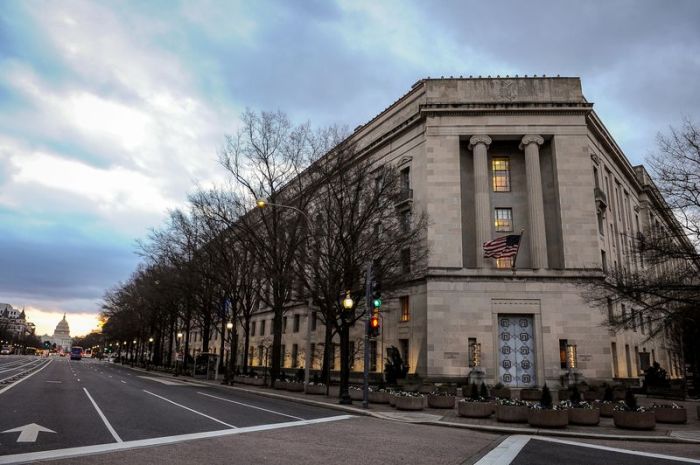BERLIN (Reuters) – Britain must respect its commitments in the withdrawal treaty it signed with the European Union if it wants to have an agreement on future trade relations with the bloc, the chairman of euro zone finance ministers Pascal Donohoe said on Friday.
In one of the most extraordinary turns since the 2016 Brexit referendum, Britain explicitly said this week that it plans to break international law by breaching parts of the Withdrawal Agreement treaty it signed in January.
This plunged talks on a future trade relationship between the EU and Britain into crisis less than four months before the United Kingdom is due to leave the EU’s orbit at the end of a transition period.
“As the United Kingdom looks to what kind of future trade relationship it wants with the European Union, a prerequisite for that is honouring agreements that are already in place,” Donohoe told reporters on entering talks of euro zone ministers.
The European Commission, which conducts talks on the future trade deal with London on behalf of the 27-nation bloc, asked Britain on Thursday to drop by the end of September the parts of a planned bill that would break the treaty with the EU.
“It is imperative that the government of the United Kingdom respond back to the call from the Commission … this is a prerequisite to what any future relationship could look like,” Donohoe said.
German Finance Minister Olaf Scholz, speaking to reporters, said the EU would be open to a deal with Britain until the “last moment”, but Britain had to respect what it had agreed to.
“Treaties have to be respected – anyone knows that. My view on the trade discussions is the following: You have to do it up to the last moment, but you have to be very clear,” Scholz said.
The bill Britain wants to pass would override provisions in the withdrawal treaty meant to ensure Britain would not give companies exporting to the EU an unfair advantage by subsidising them. The EU is sensitive to keeping competition with Britain fair after Brexit.
“We will not accept anything that could jeopardise or weaken the single European market,” French Finance Minister Bruno Le Maire said.
(Writing by Jan Strupczewski; Editing by Peter Graff)























